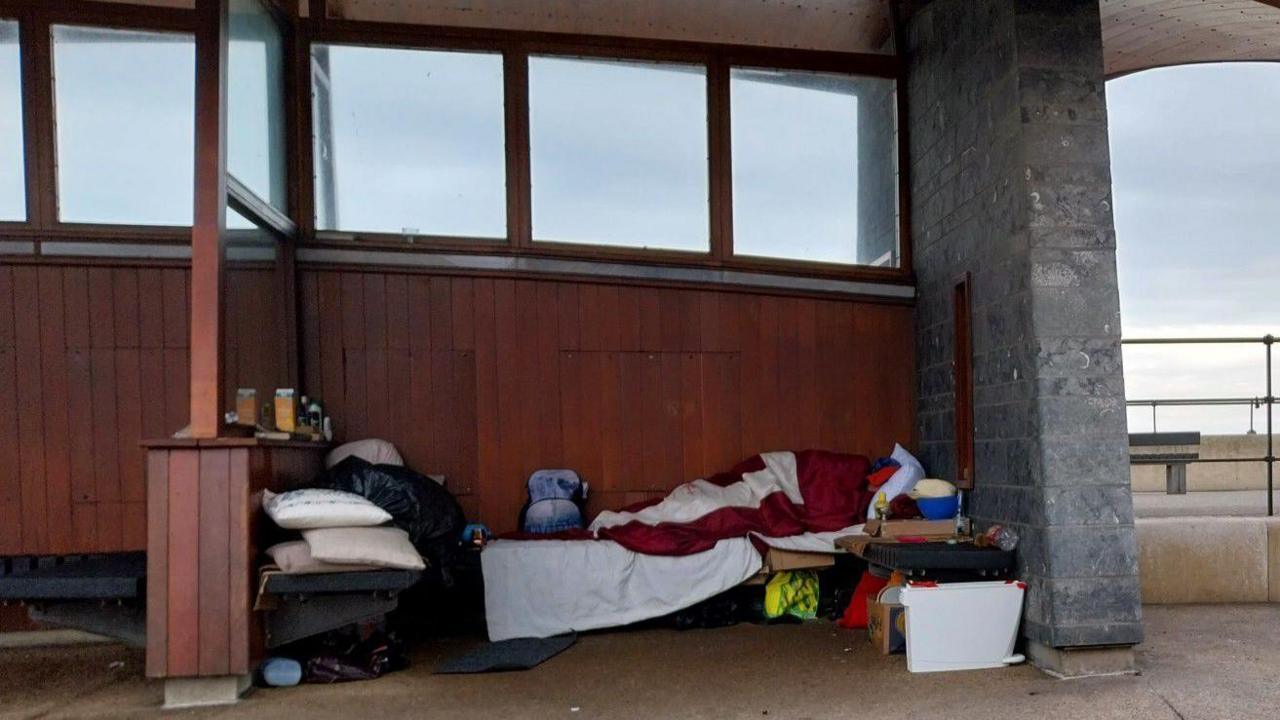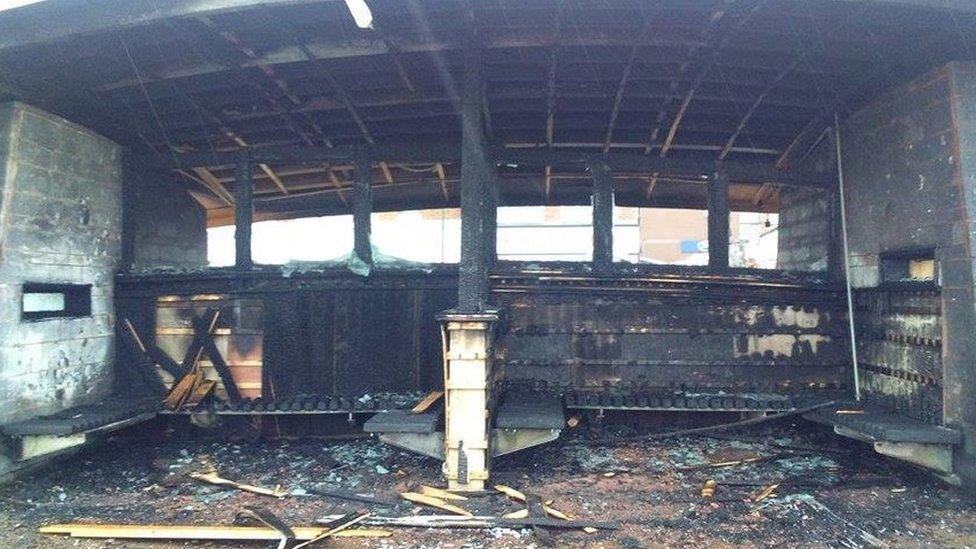Rough sleeping clampdown order for beach shelters

The shelters have been part of Redcar's seafront for more than a decade
- Published
Steps are to be taken to tackle rough sleepers urinating and taking drugs in a town's seafront shelters.
Redcar and Cleveland Council and local police said they had held an "emergency" meeting to discuss problems.
They said action had been agreed including stop and searches when members of the public reported drug taking.
Council leader Alec Brown said: "The shelters are not a safe or appropriate place to stay and as a council we must protect and serve all the residents and visitors."
Less than a week ago, the council said it had to pay for repairs after the shelters were set on fire.
The Labour-led local authority said it had offered help to those there but support had been declined, according to the Local Democracy Reporting Service.
It said a dispersal order had been agreed, as well as the installation of a rapid response camera on the seafront.
Cleveland Police said: "Local neighbourhood officers in Redcar are aware of the presence of people that have been sleeping in the shelters on the seafront.
"Should there be any evidence of criminal offences then police will deal with those appropriately."
The council also said an anti-social behaviour team would be deployed in the Coatham area.
Mr Brown added: "The police have asked that if anyone sees drug taking to report it immediately if possible.
"Their powers to stop and search are limited unless they have evidence or reports of drug taking."
Liberal Democrat councillor Chris Jones said he had seen evidence of people urinating and taking Class A drugs in the area.
"This is not a good look for our town when we are trying to increase visitor numbers and overnight stays," Mr Jones said.
The shelters were installed on the seafront in Redcar in 2013.
Follow BBC Tees on X (formerly Twitter), external, Facebook, external and Instagram, external. Send your story ideas to northeastandcumbria@bbc.co.uk.
Related topics
- Published12 June 2016
